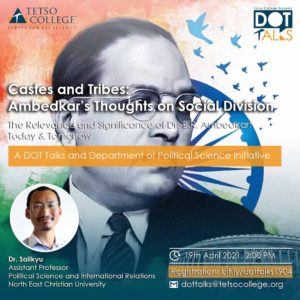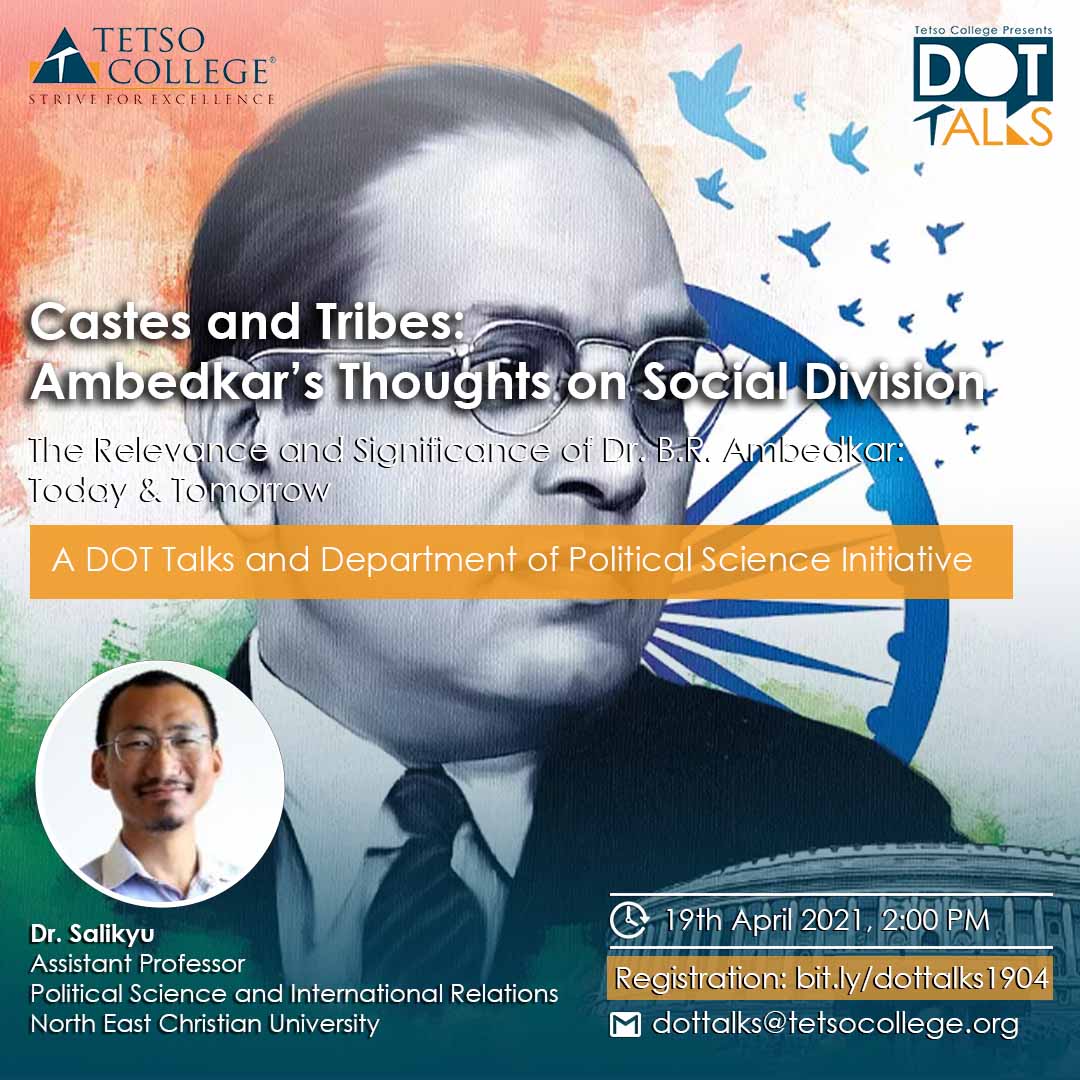
Time : 2:00 PM
Registration : bit.ly/dottalks1904
DOT Talks in collaboration with the Department of Political Science brings you an Online Lecture Series titled ‘The Relevance and Significance of Dr. B.R. Ambedkar: Today & Tomorrow’. The event will be graced by internationally recognized academicians, thinkers, and also our students who will be delivering consecutive lectures.
The second lecture in the series is called ‘Castes and Tribes: Ambedkar’s Thoughts on Social Division’ and will be delivered by Dr. Salikyu on 19th April 2021 at 2 PM.
Abstract: Ambedkar’s role in the upliftment of the Dalit community has had a profound impact on the colour of the Indian Democracy. His thoughts and philosophy far surpasses the ken and magnitude of most contemporary Indian thinkers, including Gandhi. And his epitomic role in the framing of the Indian Constitution secured stability to a country characterized by inherent social divisions based on caste, creed, culture, religion, etc. In other words, there is indeed no limit to what can be said of his contribution to India and Indian society in general through his thoughts and with his actions; but, most importantly, staying faithful to what he believed in his words and deeds.
About the Speaker: Dr. Salikyu is a faculty of International Relations and Political Science at the North East Christian University. He specializes in Political Psychology (Behavioralism) and Research Methods.








